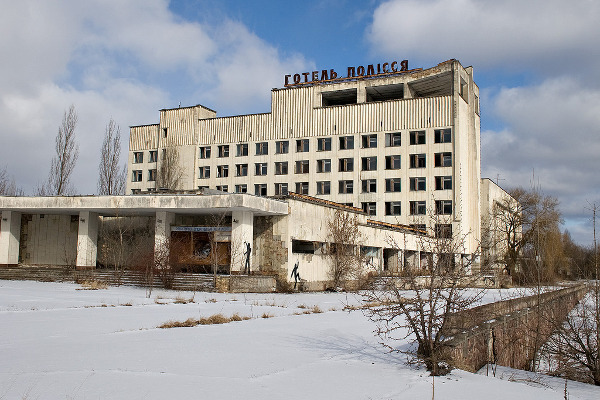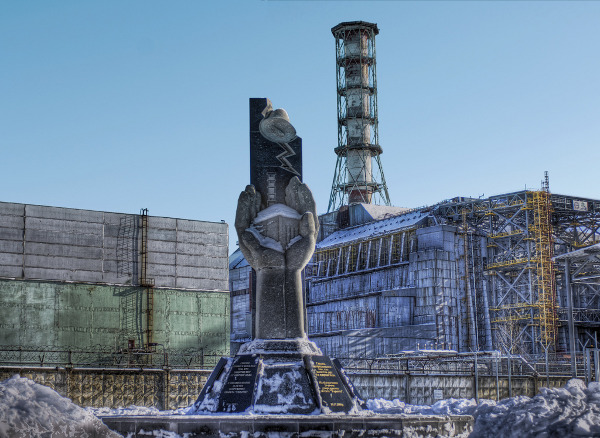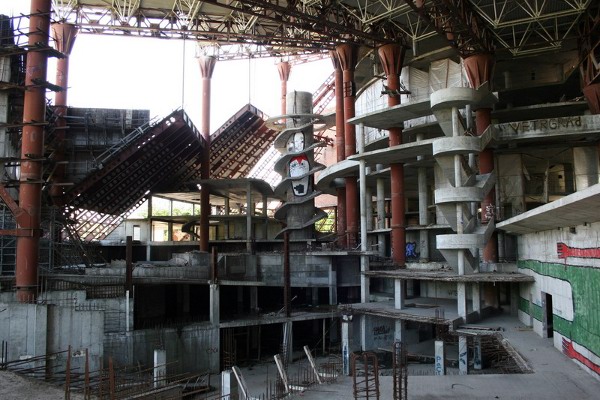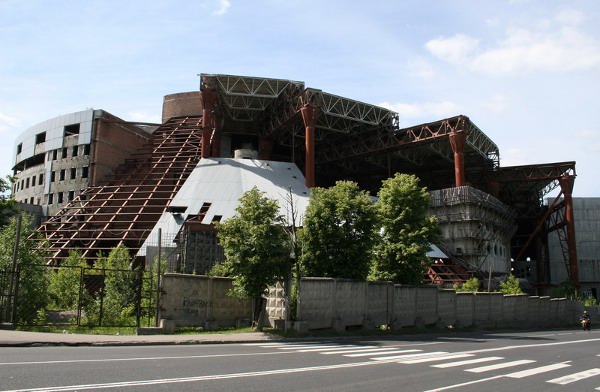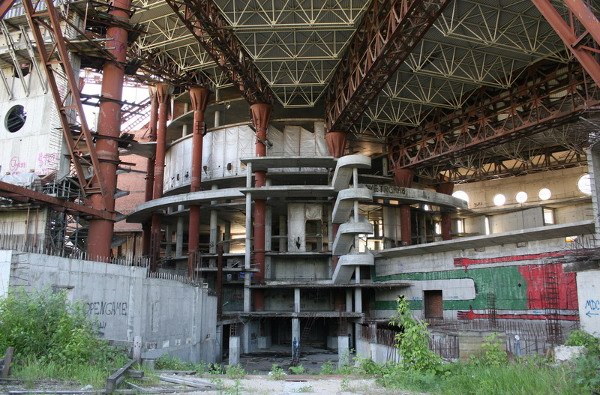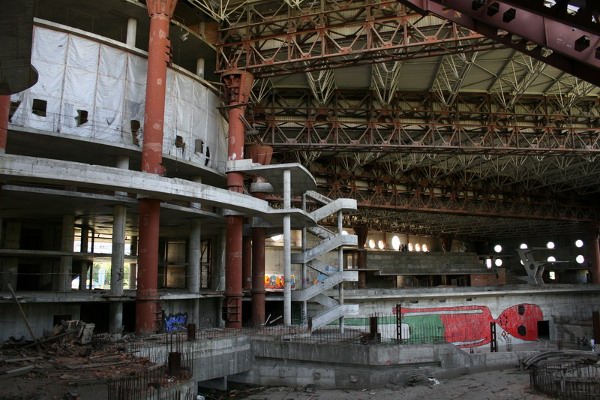Students @ Stetson University exploring Russian culture. Неофициальный сайт студентов Стетсноского университета изучающих русский язык и культуру.
Monday, May 3, 2010
Modest Petrovich Mussorgsky Pictures at an Exhibition
Travel All Russia
http://www.travelallrussia.com/destinations/
This site is actually pretty cool; it has brief but informative descriptions of several major cities and regions of Russia, and what I've seen of the photography is quite good. Click around this different destination tabs, and take a quick look at the "facts" tab while you're at it. There is also an interesting "IQ" quiz to test your knowledge of Russia.
I'd love to book a trip to Russia sometime (other than studying abroad, of course), but I suppose that will have to wait for now. Still, before I go, I will probably return to this website.
Sunday, May 2, 2010
Mosfil'm: online movie theatre
Moscow Times (April 30, 2010): Mosfilm Launches Online Movie Theater
In a bid to fight piracy, Mosfilm, the leading state-owned film studio,
launched an online service Wednesday, set to offer 2,500 classic movies for
free or for a small fee.
The service, accessible at http://cinema.mosfilm.ru, is in test mode,
scheduled to become fully operational "in a few days." The site has an
English version, making it available to users worldwide.
The current catalogue, set to expand, offers 142 movies produced at Mosfilm
over the course of its 85-year history, including Andrei Tarkovsky's "Ivan's
Childhood" and "Stalker" and Nikita Mikhalkov's "An Unfinished Piece for a
Player Piano."
The movies are screened for free on a daily timetable and can be either
watched online for 25 rubles (90 cents) or downloaded for 65 rubles ($2.20)
the rest of the time. Only the free screening option is presently available.
Saturday, May 1, 2010
Owner of Stalin museum killed in Russia
Link
Tchaikovsky Also Fills Space

So my videos for some reason are really messing up the page so in the theme of Tchaikovsky I am just re posting a blog I had written before about Tchaikovsky that will help coax my current blog down the page faster.
Many people know of the famous Romantic era Russian composer Pyotr Ilyich Tchaikovsky (Пётр Ильи́ч Чайко́вский) who lived from May 7th 1840 to November 6th 1893. His most widely known compositions include such famous ballets as “Swan Lake” and “The Nutcracker”. No patriotic American could forget his 1812 Overture, played at every 4th of July extravaganza (its original intended purpose to celebrate Moscow's successful defense against Napoleon's advancing troops at the Battle of Borodino in 1812). His western oriented training at the St. Petersburg Conservatory set him apart from the contemporary nationalistic music written during his time, earning him wide acclaim and success. Many people are unaware, however, of Tchaikovsky's severe personal struggles and the argued circumstances of his death. It is largely believed that the composer was a homosexual (as researched most extensively by author Alexander Poznansky). In fact there are letters available today, previously censored by the Soviets, in which Tchaikovsky himself openly discusses his sexual preferences. Nevertheless, in 1877 he entered into a disastrous marriage with Antonia Miliukova that ended unofficially in 6 weeks (although divorce was never filed and Tchaikovsky died a married man). As he rose to the top of the composing scene between 1877-1890, Tchaikovsky corresponded with another woman, Nadezhda Von Meck, who supported his composition monetarily under the stipulation that they never meet in person. The letters between them deeply affected the composer and he professes in one particular excerpt that her contact seemed to him “the hand of fate itself, watching over me and protecting me”. This relationship too, proved devastating when in 1890 her correspondence abruptly ended, allegedly due to her filing for bankruptcy (a few music historians postulate that the cut was made in her discovery of his homosexuality). The real mystery lies in how the composer died. Despite that a true diagnosis may never be possible due to unreliable accounts at the time of his death and the lack of knowledge of effects of certain lifestyle habits such as drinking, there has been much research as too what may have caused his unexpected (and relatively young) death. Most musicologists attribute his demise to cholera by contaminated water. The question that is debated is whether or not the contamination was purposely executed by Tchaikovsky in suicide. There have been rumors that his former classmates urged him to commit the act to avoid being exposed as the lover of a nephew of a member of the Russian aristocracy. Others claim that the poisoning may have been the result of his bitterness over the loss of his contact with Von Meck. Regardless his passing occurred just nine days after the premier of his now famous and emotionally charged Symphony Pathetique (No. 6). He was interred in the Tikhvin Cemetery next to fellow composers Borodin, Mussorgsky, Rimsky-Korakov, Glinka, and Balakirev (a.k.a. The Five). -Posted by Courtney E. Van Cleef
Cello Awesomeness
It’s not a concerto, but it does feature a brilliant soloist with orchestra. Notice what an enormous range the cello has, from very low to as high as the violins. Rococo Variations was written at a stressful time, but it is a joyous piece.
Toward the middle of 1876, Tchaikovsky sank into one of his many depressions. His financial situation was precarious. The wealthy noblewoman Nadejda von Meck had not yet initiated the correspondence and patronage that were subsequently to allow him to devote himself to composition free of monetary concerns. His confidence in his own talent had been severely shaken by what he perceived as some career setbacks. The violent swings of his moods are reflected in the astonishing diversity of style in the music he wrote during this troubled period.
One of the most challenging works in the cello literature, the "Rococo" Variations, as this work has come to be known, is an analog to Tchaikovsky's later Mozartiana Suite in that it pays homage to Mozart, who was Tchaikovsky's musical idol.
Tchaikovsky composed the piece for Wilhelm Karl Friedrich Fitzenhagen, a cellist friend who taught at Moscow Conservatory. Fitzenhagen had a significant hand in the fine-tuning of the solo part. Yet his interest was a mixed blessing, for he exercised editorial jurisdiction over the orchestral parts and the order of the Variations as well as over cellistic details. Still, Fitzenhagen's championship of the Variations contributed greatly to Tchaikovsky's growing reputation abroad. After Fitzenhagen performed the Rococo Variations at the prestigious Wiesbaden Festival in 1879, he wrote to Tchaikovsky that Franz Liszt had exclaimed: "Here, at last, is music again."
The piece consists of a theme, seven variations and two cadenzas. The four-square theme is preceding by a wistful, "once upon a time" orchestral introduction before the cello declares the melody. Within individual variations Tchaikovsky adapts sonata principles, also drawing on the precedent of the Baroque through use of tripartite forms and rondo-styles. Each segment presents formidable challenges to the soloist, in several places exploiting the outermost range of the instrument.
While the Rococo Variations continue to strike awe -- and sometimes terror! -- into the hearts of cellists, their accessibility and transparent grace have made them a great favorite of audiences, and the next-best thing to a Tchaikovsky cello concerto.
The score calls for woodwinds and horns in pairs, solo violoncello, and strings.
-Program Notes by the Dallas Symphony
Unit 10 - Amazing Abandoned Areas
Ruslan and Ludmila UNIT 10!


Ruslan and Ludmila
A long long time ago there was a great feast to celebrate the wedding of the beautiful princess Ludmila and the knight Ruslan. But the bride was kidnapped on the wedding day. Ruslan, along with three other knights named Rogday, Farlaf and Ratmir who also wanted to marry Ludmila, rode off to search for her.
A short while after, Ruslan met a huge head on a battlefield and also won a victory over it. The head told Ruslan that all of Chernomor's power was contained in his beard. And under the head, Ruslan found a shining sword. Ruslan left and went to search his beloved Ludmila.
She had been held at Chernomor's castle. The scorcerer made her life comfortable, but she missed Ruslan and wasn't happy.
It happened that at that time the city of Kiev was besieged by enemies. Ruslan, who was revived by a good wizard, came charging to the city and saved it. He then went to to his bride-to-be and awakened her with with a magic ring. Ruslan and Ludmila were together again and lived happily after that.

